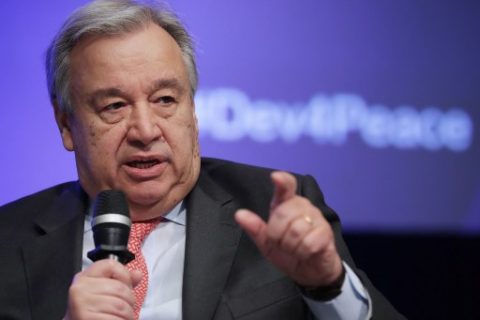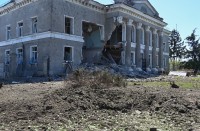
UNITED NATIONS, United States (AFP) — United Nations Secretary-General Antonio Guterres is encouraged by the agreement signed Thursday by Turkey, Russia and Iran to set up safe zones in Syria and de-escalate fighting, his spokesperson said.
“It will be crucial to see this agreement actually improve the lives of Syrians,” UN spokesperson Stephane Dujarric said in a statement.
Russia, Iran and Turkey signed the agreement to set up the four safe zones following talks in the Kazakh capital Astana on shoring up a ceasefire agreed in December.
Russia and Iran back Syrian President Bashar al-Assad’s forces in the war while Turkey is supporting rebel forces.
The agreement provides for a ceasefire, a ban on all flights, rapid deliveries of humanitarian aid to the designated areas and the return of refugees.
Guterres “welcomed the commitments to ceasing the use of all weapons, particularly aerial assets” and to quickly deliver medical aid and basic necessities, said the spokesperson.
The UN will support de-escalation, said the spokesman but he did not elaborate.
UN envoy Staffan de Mistura, who was in Astana as an observer, described the agreement as “an important promising positive step in the right direction” toward a halt in the fighting.
The United States however was extremely cautious, casting doubt over Iran’s role even as it expressed hope that the deal could help set the stage for a settlement.
A working group will be set up within two weeks to resolve technical issues and the three countries agreed to set up the four areas by June 4.
The four areas include key territory held by anti-Assad forces.
The first zone includes the whole of Idlib province along with certain parts of neighboring Latakia, Aleppo and Hama provinces.
The second will encompass certain parts in the north of Homs province and the third will be comprised of some areas of Eastern Ghouta, outside of Damascus.
The fourth zone will include parts of the Deraa and Quneitra provinces in southern Syria, according to the memorandum seen by AFP.
More than 320,000 people have been killed in Syria since the country’s war began with anti-government protests in March 2011.







